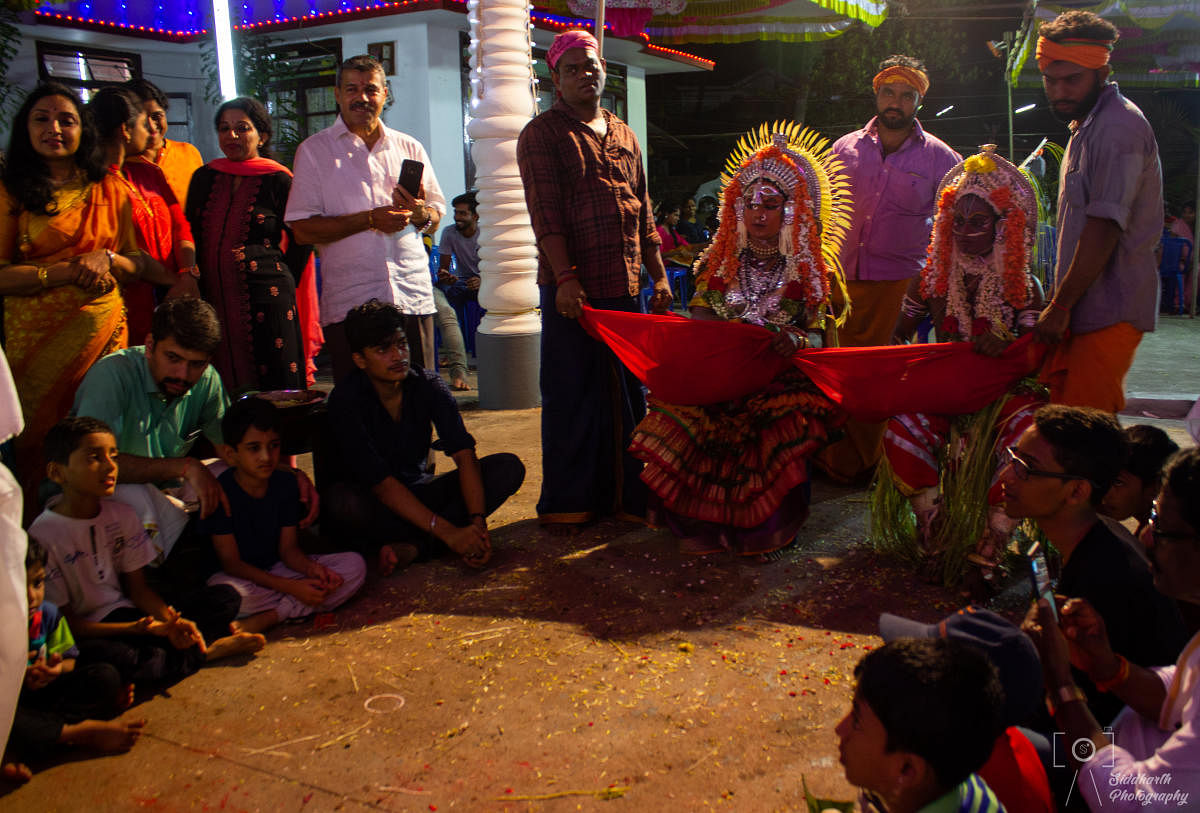
Year after year, I remember being woken up by my mother, sometimes an aunt, at an unearthly hour for what is now a family tradition...or subversion of it, rather. I wake up, reluctantly at first and then, as the warmth and aroma hit my groggy senses, a bit more eagerly. In front of me, I see a woman I have known all my life, mostly admired and sometimes feared, her face flush with excitement and an impish smile on her face. Instantly, however, I am distracted by what she has in her hand — a small plantain leaf with 4-5 steaming pundis (rice dumplings) covered in rich kori gassi (chicken gravy).
My mother hails from Mangaluru and the ritualistic performance of Bhoota Kola is intrinsic to the culture of Tulunadu — the land of the Tuluvas. We believe that we are protected by the deiva bhootas (divine spirits) and once a year, we pay a grand obeisance to them in the form of a kola.
Every household or community prays to a different deiva bhoota, and the ritual sees the performer play out the life of the deiva, the trials and tragedies, while also addressing the issues of the family, offering resolutions and blessings. Our house witnesses four kolas: Kallurti-Kalkuda, Korati, Guliga and Koragajja.
The pundi-kori ritual is part of the Kallurti-Kalkuda kola. The day preceding the kola is marked by vegetarian food and it ends with offering the bhootas pundi-kori.
But, there’s an interesting twist here. It is believed that many centuries ago when the first nemothsava was held, the spirits were offered poisoned food by the family of Bairanasuda, the king of Karkala (Tulu Paddhana Samputa by Amritha Someshwara). The spirits that saw this with their ‘divyadrishti’, ordered that the male progeny of the family be fed the food first before being served to them. The children, needless to say, died as a result and the sabotage proved costly for the family.
Though nobody has tried to poison the deivas thereafter, the practice has continued till date. Where in most cases the food is offered first to the deity and then to the people, here it is the other way round. But over the years, the practice has evoked more excitement and anticipation than dread or veneration. After a day-long vegetarian feast, the children yearn for a non-vegetarian fare. And the fact that only the male children of the family get to eat it first doesn’t go down well with us girls in the family.
Dominance
So time and again, there are mini mutinies. While the non-confrontational ones restrict ourselves to teasing our male cousins about leaving us out of the fun or casually remark about how an age-old custom that discriminates between genders thrives even today in a matrilineal society, no less, the more assertive ones fight with boys and challenge parents and elders to secure a place in the ritual. As far as I remember, I have only seen two girls in my family, a cousin and a three-year-old niece, achieve this.
The rest of us choose our battles wisely (for there are far more rituals to be contested), take our sleepy selves to bed even as the night drags on — and tales of women deivas fighting their way through patriarchy and caste-based oppression fill the air — and leave it to the mothers and the aunts to grab our share of the pundi-kori from the boys and wake us up.